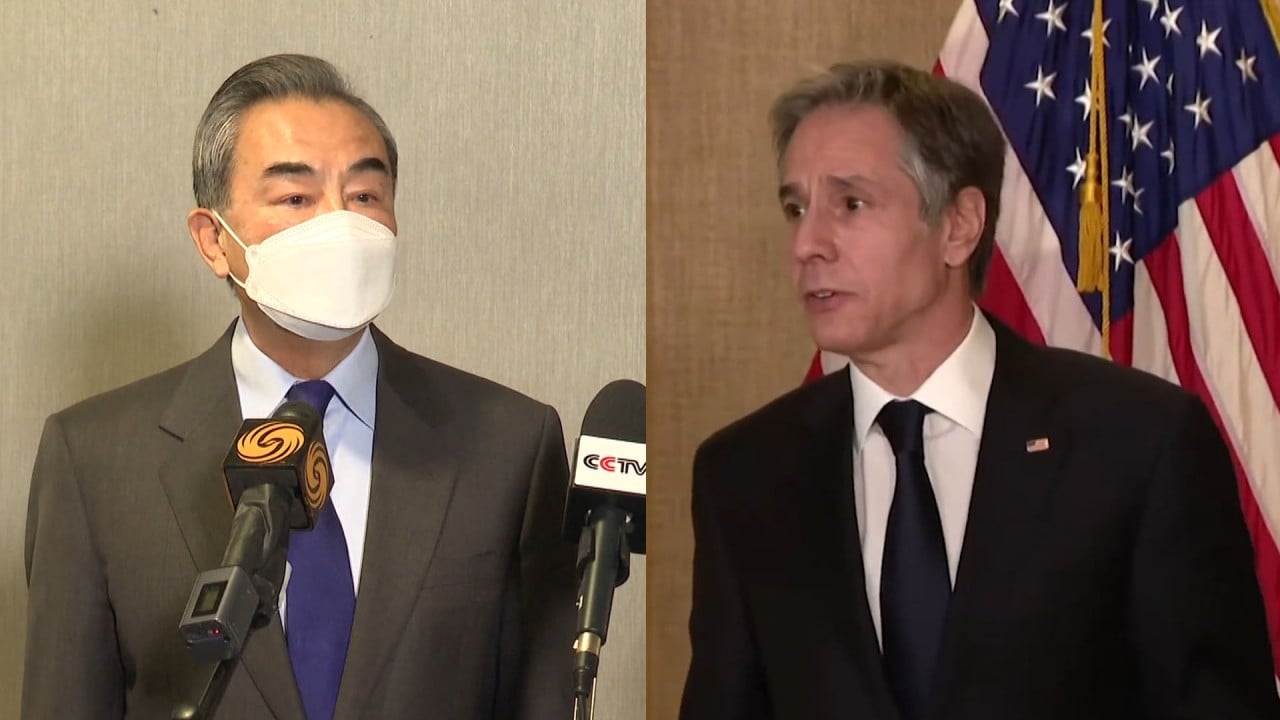
Will Xi meet Biden? Why China is wary of US diplomatic intentions
- The strained relationship between the US and Russia has not prevented Joe Biden from meeting Vladimir Putin
- However, China can’t trust diplomatic efforts by a US administration that is intent on confronting and containing it
As the No 2 US diplomat Wendy Sherman kicks off her Asian trip this week, no one has completely ruled out the possibility that she will visit China.
Wang stressed that the most important thing for China now is to continue to handle its own affairs well. Wang’s attitude was also echoed by officials for China’s Ministry of Foreign Affairs.
Many have cited cultural and psychological reasons as explanations for China’s reservations. As oriental culture is more sensitive about maintaining reputations and saving face, high-level engagements should be conducted in a friendly environment that may have been specifically created.
Having said that, behind such cultural and psychological factors are complicated strategic and geopolitical reasons that should be explored.
Why does China remain doubtful about American sincerity? And, what lies behind the US’ expressions of interest in meeting Chinese leaders? To answer these questions, some lessons could be drawn from the meeting in Anchorage, Alaska.
Will the time ever be right for Biden and Xi to sit down together?
As clearly manifested in the Anchorage talks, the US does not engage with China with the sincere intention to deal with bilateral issues, such as enhancing cooperation or tackling global challenges together in the time of Covid-19. Rather, the US seeks first to appease its domestic audience.
A diplomatic meeting was turned into a showcase for the Biden administration’s tough policy towards China before the American public, including the Republicans. This is a clear signal that the US-China engagement in Anchorage was about teaching the Chinese a lesson on human rights issues, rather than improving bilateral relations.
Notably, the timing of Sherman’s possible visit and its strategic intentions give the lie to the seriousness of the Biden administration’s intentions to engage China.
Why US-Russia reconciliation will be difficult despite warmer relations
Even at the height of the Cold War, the US and Soviet Union remained engaged with each other to at least manage the crisis. Thus, Sherman’s by-the-way visit to China speaks for itself. This is an itinerary detail that’s more optional than essential.
Internationally, the China issue has been put forward by the US as a central topic to be discussed with all its allies and partners on either bilateral or multilateral occasions.
All these efforts are aimed at better positioning the US in its competition with China. US practices give the distinct impression that the nation is not developing itself to deliver peace and prosperity to its people and the international community. Instead, it is mobilising its domestic and international resources to contain another state. Its strategic goal is not to develop itself but to compete with another nation.
Worse, at a time when fighting the Covid-19 pandemic and restoring the economy are top human rights priorities for the world, and international cooperation is more necessary than ever, the US has used every lever it has to push big-power competition.
The dilemma of having to choose a side has been thrust upon nearly every state, like it or not. Disinformation, sanctions and coercion with regard to China have become the “new normal” as the US pushes others to take sides.
When diplomatic engagement is applied in a strategic confrontation, it is no wonder that China is being cautious. Chinese wariness should also serve as a warning to other countries in this region.
Dr Cheng Jing is an associate fellow at the Global Governance Institution and lecturer at the School of Foreign Studies, Xidian University
Xu Jingzhi is an intern at the Global Governance Institution. She studies at New York University Shanghai, majoring in political science and economics



